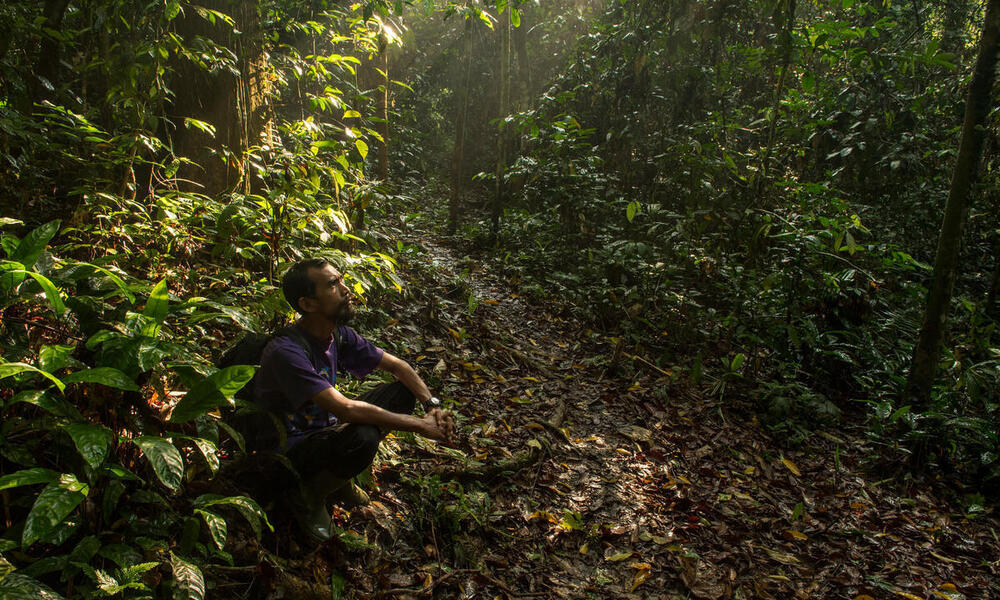Deep in the heart of the Sumatran rain forest in Indonesia, a small company has a big vision. PT Alam Bukit Tigapuluh (ABT), which means The Thirty Hills Forest Company, just marked its fifth year of piloting a new approach to commercial business with a conservation mission.
Sumatra is one of the most biodiverse regions on Earth, home to iconic species such as elephants, tigers, rhinos, and orangutans. But it also has one of the highest rates of deforestation on the planet, driven by high global demand for commodities like palm oil and rubber. Thirty Hills is the last large block of intact, lowland forest still standing in central Sumatra.
ABT works with the local and Indigenous communities living in Thirty Hills to conserve the forest and protect wildlife, while also working to generate revenue and income to support community livelihoods and operations. Today, ABT is managing nearly 100,000 acres of land, working as one of just 16 officially recognized “ecosystem restoration concessions” in Indonesia meant to protect and restore critical forests.
“In just five years, we have already seen great success in saving some of the most biologically diverse and important forests on our planet,” says Dody Rukman, CEO of ABT. “We have shown that there can be economic and social benefits from an intact, healthy forest and we’ll continue to work creatively to keep Thirty Hills as the crown jewel it has always been.”

